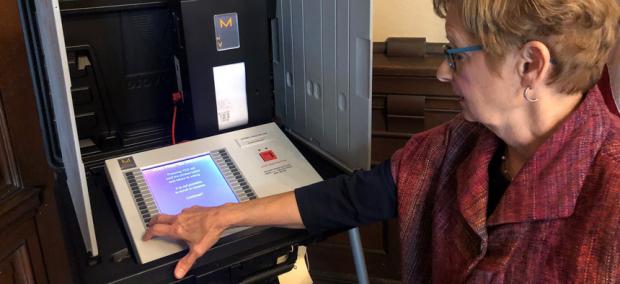
Breaking News
 Tucker Carlson and the Freedom of Speech
Tucker Carlson and the Freedom of Speech
 Democrat Running for U.S. Senate in Maine Supports 'Giving Land Back' to Indigenous People (
Democrat Running for U.S. Senate in Maine Supports 'Giving Land Back' to Indigenous People (
 Instacart Shares Slide As FTC Reportedly Investigates AI Pricing Tool
Instacart Shares Slide As FTC Reportedly Investigates AI Pricing Tool
 Nuclear startup raises mega cash in race to deliver portable reactors
Nuclear startup raises mega cash in race to deliver portable reactors
Top Tech News
 This tiny dev board is packed with features for ambitious makers
This tiny dev board is packed with features for ambitious makers
 Scientists Discover Gel to Regrow Tooth Enamel
Scientists Discover Gel to Regrow Tooth Enamel
 Vitamin C and Dandelion Root Killing Cancer Cells -- as Former CDC Director Calls for COVID-19...
Vitamin C and Dandelion Root Killing Cancer Cells -- as Former CDC Director Calls for COVID-19...
 Galactic Brain: US firm plans space-based data centers, power grid to challenge China
Galactic Brain: US firm plans space-based data centers, power grid to challenge China
 A microbial cleanup for glyphosate just earned a patent. Here's why that matters
A microbial cleanup for glyphosate just earned a patent. Here's why that matters
 Japan Breaks Internet Speed Record with 5 Million Times Faster Data Transfer
Japan Breaks Internet Speed Record with 5 Million Times Faster Data Transfer
 Advanced Propulsion Resources Part 1 of 2
Advanced Propulsion Resources Part 1 of 2
 PulsarFusion a forward-thinking UK aerospace company, is pushing the boundaries of space travel...
PulsarFusion a forward-thinking UK aerospace company, is pushing the boundaries of space travel...
 Dinky little laser box throws big-screen entertainment from inches away
Dinky little laser box throws big-screen entertainment from inches away
 'World's first' sodium-ion flashlight shines bright even at -40 ºF
'World's first' sodium-ion flashlight shines bright even at -40 ºF
A Plan to Engage Hackers in Election Security

Fueled by monetary rewards and curiosity, hackers have played a significant role in helping companies discover and fix security vulnerabilities in a variety of technology and software applications.
But one year out from the 2020 presidential election, can they do more to help secure voting systems? Technology researchers hope so.
The Information Technology-Information Sharing and Analysis Center (IT-ISAC) is evaluating the feasibility of creating a coordinated vulnerability disclosure (CVD) program that could alert voting system companies about weaknesses.
The first step in establishing a CVD program requires voting vendors to have a system in place for receiving information about discovered vulnerabilities and acting on that information—procedures several vendors have already begun to implement, said Scott Algeier, the executive director of IT-ISAC, a non-profit that serves as a clearinghouse for information on cyber threats to critical infrastructure.



